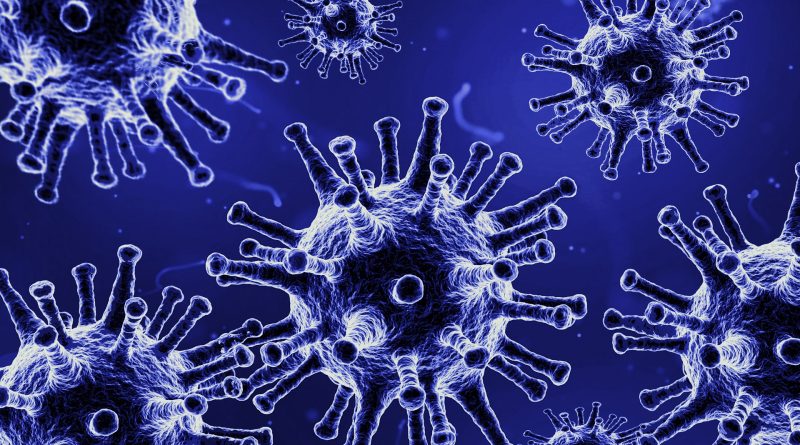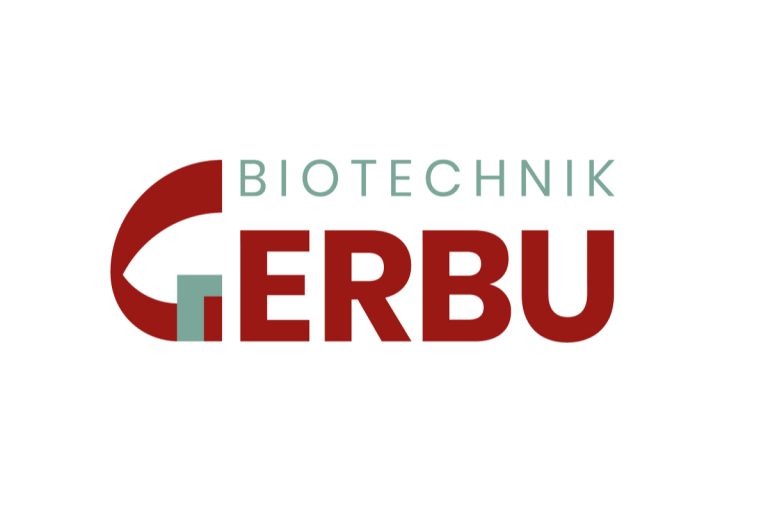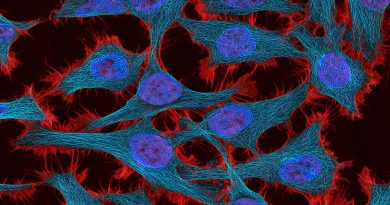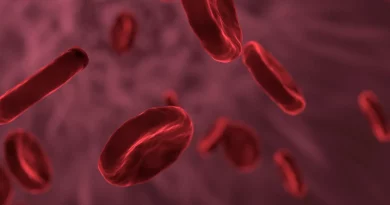FDA Issues EUA for GSK & Vir Monoclonal Antibody COVID-19 Treatment
GSK and Vir Biotechnology announced that the monoclonal antibody sotrovimab (VIR-7831) has received Emergency Use Authorization (EUA) from the US FDA for treatment of mild-to-moderate COVID-19 in high-risk adults and paediatric patients.
Single-dose monoclonal antibody sotrovimab (VIR-7831) receives FDA authorisation for COVID-19 treatment in the U.S.
Sotrovimab (previously VIR-7831), an investigational single-dose monoclonal antibody for the treatment of mild-to-moderate COVID-19 in individuals age 12 years and older weighing at least 40 kg with and at risk to develop live threatening complications, will be available for appropriate patients in the U.S. in the coming weeks.
Adrienne E. Shapiro, M.D., Ph.D., an infectious disease specialist at Fred Hutchinson Cancer Research Center and investigator in the COMET-ICE trial, said:
“Monoclonal antibodies like sotrovimab are potentially one of our most effective tools for fighting COVID-19. While preventive measures, including vaccines, can reduce the total number of cases, sotrovimab is an important treatment option for those who become ill with COVID-19 and are at high risk – allowing them to avoid hospitalisation or worse.”
Dr Hal Barron, Chief Scientific Officer and President R&D, GSK, stated:
“The fast pace of COVID-19 vaccinations in the U.S. is encouraging, yet, despite these aggressive efforts, there is still a need to help prevent infected patients from developing complications. In just over a year since starting our collaboration and in less than 10 months since beginning clinical trials, we are delighted that, as of today, the benefits of this unique monoclonal antibody will now be available to patients in need.”
While the pandemic remains a public health emergency, the FDA has awarded Sotrovimab an EUA to ease the availability and use of this investigational monoclonal antibody for the treatment of COVID-19 in the United States. The FDA Fact Sheet for Healthcare Providers on the emergency use of sotrovimab includes the recently modified COVID-19 high risk criteria, including additional medical conditions and factors resulting in a higher risk of severe disease progression. The EUA for sotrovimab contains post-authorization conditions that are detailed in the Letter of Authorization. Clinical studies for sotrovimab are still underway. In the first half of 2021, an analysis of the COMET-ICE trial’s whole population’s safety and effectiveness outcomes at day 29 is expected. In the second half of 2021, GSK and Vir intend to file a Biologics License Application (BLA) to the FDA.
Sotrovimab shows 85% reduction in risk of hospitalisation
Sotrovimab was approved for EUA following interim analysis of efficacy and safety data from the Phase 3 COMET-ICE trial (COVID-19 Monoclonal antibody Efficacy Trial – Intent to Care Early) in high-risk adult outpatients, which was discontinued early by an independent data monitoring committee in March 2021 due to evidence of profound clinical efficacy. The primary endpoint of the study, hospitalization for more than 24 hours or death, was reduced by 85% (p=0.002) in participants on sotrovimab therapy versus placebo, as previously disclosed. Rashes (2%) and diarrhea (1%) were the most prevalent adverse effects in the sotrovimab therapy group in COMET-ICE, all of which were Grade 1 (mild) or Grade 2 (moderate). Sotrovimab did not cause any additional treatment-related side events at a greater rate than placebo. Anaphylaxis and infusion-related events are among the hypersensitivity warnings in the EUA.
Sotrovimab Shows Activity Against All Known COVID-19 Variants
Sotrovimab is a monoclonal antibody that targets a conserved spike protein epitope that is less likely to mutate over time. The EUA submission also involves data evidence from a published in vitro study confirming that sotrovimab is effective against all circulating COVID-19 variants, including those from Brazil (P.1), California (B.1.427/B.1.429), India (B.1.617), New York (B.1.526), South Africa (B.1.351) and the UK (B.1.1.7).
GSK and Vir plan to continue to test sotrovimab’s potential to sustain effectiveness against new and emerging strains. The clinical implications of these in vitro variant results are unclear at this point. The data is still being collected and analyzed.
GSK and Vir’s Commitment to Patient Access to Sotrovimab
GSK and Vir are actively collaborating with government authorities all around the globe to make sotrovimab available to people who need it. Following the referral of sotrovimab to the CHMP under Article 5(3) of Regulation 726/2004, the European Medicines Agency’s (EMA) Committee for Human Medicinal Products (CHMP) published a favorable scientific opinion on May 21, 2021. The statement refers to the use of sotrovimab in the treatment of adults and adolescents 12 years of age and older weighing at least 40 kg with COVID-19 who do not require oxygen treatment and are at risk of deteriorating to severe COVID-19.
The European Medicines Agency (EMA) has also launched a rolling evaluation of data on sotrovimab, which will continue until enough evidence is available to justify the filing of a formal marketing authorization application. In April, Health Canada began a study of sotrovimab under the COVID-19 drugs’ accelerated Interim Order application procedure. GSK and Vir are continuing to negotiate with regulatory authorities worldwide to determine the best regulatory approaches for making sotrovimab available to COVID-19 patients as soon as feasible.
About the COMET-ICE Study Design
The COMET-ICE trial, a multicenter, double-blind, placebo-controlled Phase 3 study, looked at intravenous (IV) infusions of sotrovimab in participants with mild or moderate COVID-19 who were at high risk of severe disease progression. This ongoing study assessed the safety and effectiveness of a single 500 mg sotrovimab IV infusion against a placebo in non-hospitalized subjects across the world. Sotrovimab’s safety is based mostly on an interim study of 868 participants (430 patients in the treatment arm and 438 in the placebo arm). Amongst the participants, 63% were Hispanic or Latino and 7% Black or African American. The Centers for Disease Control and Prevention estimates that these populations are three times more likely to be hospitalized and two times more likely to die from COVID-19.
The primary efficacy endpoint was the proportion of patients who have progression of COVID-19 as defined by the need for hospitalisation for greater than 24 hours for acute management of illness or death. In March 2021, an Independent Data Monitoring Committee recommended that the COMET-ICE trial be stopped for enrolment due to evidence of profound efficacy.
About the Sotrovimab Clinical Development Program
The COMET clinical development program for sotrovimab comprises the following trials in addition to the COMET-ICE trial:
- COMET-PEAK is a Phase 2 ongoing trial with two goals: to compare the safety and viral kinetics of 500 mg intramuscularly (IM) versus 500 mg intravenously (IV) administered sotrovimab in low-risk adults with mild to moderate COVID-19, and to assess the pharmacokinetic similarity of sotrovimab manufactured by different processes.
- COMET-TAIL is a Phase 3 study that will commence in the Q2 of 2021 as an early therapy for COVID-19 in high-risk adults to see if IM-administered sotrovimab will minimize COVID-19-related hospitalization or mortality.
- COMET-STAR is a Phase 3 study in uninfected persons at high risk will begin in the second half of 2021 to assess if IM-administered sotrovimab will prevent symptomatic infection.
BLAZE-4, a Phase 2 trial funded by Eli Lilly and Company, compared the safety and effectiveness of bamlanivimab (LY-CoV555) alone, bamlanivimab with various neutralizing antibodies, including sotrovimab, versus placebo in low-risk adults with mild to moderate COVID-19. According to an interim analysis, bamlanivimab (700 mg) combined with sotrovimab (500 mg) showed a 70% relative decrease in patients with a persistently high viral load on day 7, compared to placebo, satisfying the primary endpoint.
Additionally, sotrovimab, along with VIR-7832 is being evaluated in the Phase 1b/2a National Health Service-supported AGILE trial in adults with mild to moderate COVID-19. VIR-7832 is the second monoclonal antibody from the Vir-GSK collaboration to be investigated as a potential COVID-19 treatment.
About Sotrovimab (previously VIR-7831)
Sotrovimab is an investigational SARS-CoV-2 monoclonal antibody that has the ability to both inhibit viral entrance into healthy cells and clear infected cells, according to preclinical data. The antibody recognizes and binds to an epitope on SARS-CoV-2 that is also seen on SARS-CoV-1 (the virus that causes SARS), showing that the epitope is highly conserved, which could make the development of resistance more difficult. Sotrovimab, which uses Xencor’s Xtend™ technology, is likewise designed to reach a high concentration in the lungs for maximum penetration into SARS-CoV-2-affected airway tissues and have a long half-life.
About VIR-7832 / GSK4182137
VIR-7832 is a dual-function SARS-CoV-2 monoclonal antibody. According to preclinical findings, it has the potential to prevent viral entry into healthy cells while also an improved ability to clear infected cells. The antibody recognizes and binds an epitope on SARS-CoV-2 that is also seen on SARS-CoV-1 (the virus that causes SARS), showing that the epitope is highly conserved, making resistance development more difficult. Sotrovimab, which uses Xencor’s Xtend™ technology, is likewise designed to reach a high concentration in the lungs for maximum penetration into SARS-CoV-2-affected airway tissues and have a long half-life. VIR-7832 has also been designed to help treat and/or prevent COVID-19 infection by potentially enhancing virus-specific T cell activity.
The following is a summary of information for sotrovimab. Healthcare providers should review the Fact Sheets for information on the authorized use of sotrovimab and mandatory requirements of the EUA.
About the Vir and GSK Collaboration
In April 2020, Vir and GSK entered into a collaboration to research and develop solutions for coronaviruses, including SARS-CoV-2, the virus that causes COVID-19. The collaboration uses Vir’s proprietary monoclonal antibody platform technology to accelerate existing and identify new anti-viral antibodies that could be used as therapeutic or preventive options to help address the current COVID-19 pandemic and future outbreaks. The companies will leverage GSK’s expertise in functional genomics and combine their capabilities in CRISPR screening and artificial intelligence to identify anti-coronavirus compounds that target cellular host genes. They will also apply their combined expertise to research SARS-CoV-2 and other coronavirus vaccines.
Recommended Companies
Ad
More Headlines






